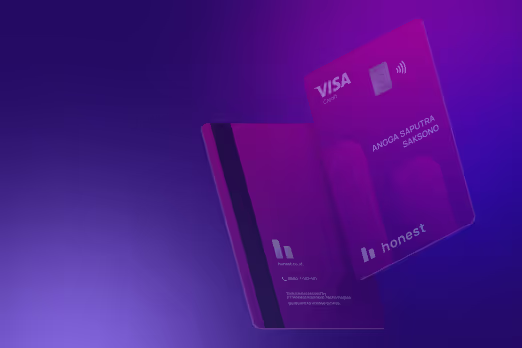Types of savings you need to know before choosing
Why you need savings?
Many people open a savings account simply because they "need to have a bank account." In reality, each type of savings account has a different function that can affect how you manage your money. Understanding your savings options will help you not only save money but also achieve your financial goals faster.
There are many people who choose the wrong savings account. As a result, money becomes "stagnant" without optimal benefits, or they fail to save consistently. Let's discuss the types of savings accounts available in Indonesia, along with their advantages and disadvantages.
Most common types of savings accounts in Indonesia
1. Regular savings
The most popular type of savings account, usually serving as the primary account.
- Characteristics: Equipped with an ATM card and passbook, easy to use for deposits and withdrawals.
- Advantages: Flexible, can be used for daily needs, including bill payments.
- Disadvantages: Low interest, administrative fees apply.
2. Time deposit savings
A type of savings account with fixed monthly deposits for a certain period.
- Characteristics: Cannot be withdrawn before maturity.
- Advantages: Higher interest than regular savings, encourages consistent saving.
- Disadvantages: Not flexible, early withdrawal usually incurs a penalty.
3. Education savings
Designed to help parents prepare for their children's school fees.
- Characteristics: Has a specific term, usually until the child enters school/university.
- Advantages: Focused on education needs, can provide financial security.
- Disadvantages: Not flexible for use outside of educational needs.
4. Hajj/Umrah savings
A special savings account for pilgrimage expenses to the holy land.
- Characteristics: Regularly deposited, connected to the official Ministry of Religious Affairs system.
- Advantages: Clear purpose, often includes travel insurance.
- Disadvantages: Cannot be used freely outside of pilgrimage needs.
5. Business savings
A savings product designed for business owners.
- Characteristics: Large transaction limits, more detailed account statements.
- Advantages: Separates personal and business finances, facilitates cash flow recording.
- Disadvantages: Higher administrative fees.
6. Children's savings
Aimed at educating children to get used to saving from an early age.
- Characteristics: Light deposits, child-friendly passbook design.
- Advantages: Builds financial habits from an early age.
- Disadvantages: Usually not equipped with an ATM card, limited access.
7. Digital savings
A modern savings account based on a smartphone application.
- Characteristics: Opened online, no need to visit a bank.
- Advantages: Practical, often no administrative fees, sometimes higher interest.
- Disadvantages: No offline services, everything is digital.
Tips for choosing the right type of savings account
- Determine your financial goals: daily, education, pilgrimage, or business.
- Check administrative fees and interest, don't just follow trends.
- Consider additional features such as mobile banking, insurance, or auto-debit.
- Ensure the bank is registered with OJK for greater security.
There is no "best savings account" for everyone. There is only the savings account that best suits your needs. If your goal is daily needs, choose a regular or digital savings account. If you want to be disciplined, choose a time deposit savings account. If it's for a specific purpose, there are education or Hajj savings accounts. The key is to first understand your needs, then choose the right savings product.
Frequently Asked Questions
• What savings account is suitable for daily needs?
Regular or digital savings accounts because they are flexible, easily accessible, and practical.
• Can a time deposit savings account be withdrawn early?
Yes, but usually with a penalty or fine from the bank.
• What is the main advantage of education savings?
It helps parents prepare for school/university fees in a planned manner, so they are not surprised by rising education costs.
• Why is it important to have a business savings account?
To separate personal and business finances, making record-keeping clearer and more professional.
• Is digital savings safe?
Safe, as long as the digital savings provider bank is registered and supervised by OJK.
What are you waiting for?
Get your Honest Card today










